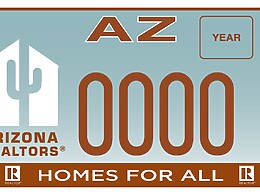Guest post by Elizabeth Hale, CEO of eeCPA, a boutique tax, accounting and consulting firm in Scottsdale.

Be it the Super Bowl, Phoenix Open or Spring Training, welcoming a significant influx of visitors has become the norm in the Valley. And with the biggest game of the year kicking off in Glendale soon, many area residents are contemplating renting out their homes to make some quick cash.
And though the idea of making easy money by opening your home to visitors for a few days seems simple, much has changed in the way short-term rentals can be used, making the process complex and demanding, and mistakes costly.
Residents need to consider time, budget and tax consequences as they consider taking on this new passive income endeavor.
Know the Time Investment
Managing a profitable short-term rental is a time-consuming investment requiring effort that many full-time professionals may not have time to undertake.
Most people don’t realize that by-and-large, short-term rentals are filled only 70% of the time, which means owners need to stay engaged in the booking process and be responsive to potential renters. Similarly, keeping track of finances and accounting will be critical to carefully track profits, expenses and even losses, to ensure the endeavor is worthwhile. Hiring a trusted CPA firm to do so is a great way to stay on track. A professional partner can keep tabs on the property’s profitability, while also alerting owners to both emerging opportunities and challenges. And should the endeavor not be profitable, they can help owners redirect their investment dollars to other ventures that generate income.
Also, owners need to keep track of changing bylaws regulating short-term rentals. Recently, the City of Scottsdale implemented new regulations for short-term rentals that went into effect Jan. 8, 2023, and other municipalities may soon follow suit. Owners should be prepared to jump through several licensing and insurance hoops before they can legally start renting.
Exercise Profitability Patience
Successful short-term rental owners can tell you how profitable their properties are, but it’s important to note that there’s a good chance owners will likely be investing for a year or two before they see any profit.
Furnishings alone will cost anywhere from $7,000 to $20,000, depending on the size of the home, the number of rooms needing to be outfitted and the quality of the pieces. Additional monthly expenses that should be factored in include:
- Mortgage: $2,000 – $3,000
- HOA: $100 – $200
- Insurance: $100 – $200
- Utilities & Internet: $300 (Arizona average)
- Overhead: $700 – $2,000
- Maintenance: 1% of property’s annual value
- Management Service (Optional): 10%–40% of income
While these costs can add up quickly, owners can work to maximize their profits by:
- Owning, not leasing. This allows you to lock in a mortgage rate to avoid yearly rent hikes
- Offering varying rates during peak seasons
- Looking outside traditional visitors to travelling professionals, such as nurses
- Using a self-service management software
- Being strategic in deciding whether “extra” amenities will increase value
Understanding Tax Considerations
It’s a misconception that short-term rentals can lend themselves to massive tax savings. The IRS has identified four categories for short-term rental tax deduction and they all lay out specific parameters to qualify for deductions. More specifically:
- The IRS limits the number of days owners can stay in the home and still deduct expenses; if they exceed this limit, they may not be able to apply deductions.
- Only up to 20% of furnishing expenses are tax-deductible.
- For people with W-2 income, a CPA can ensure that all other deduction options from deferred compensation and stocks to mitigate employment-related tax liability are applied.
- The IRS has rules about sheltering W-2 income with Schedule C losses that limit the ability to claim deductions.
- Subleasing should be avoided as exposes non-owners trying to generate profits with greater liability risks should the owner decide to terminate the lease, change terms or increase fees.
While renting out your home can be costly and time-consuming, it may also pay dividends over time.
Need help getting started? The team at eeCPA provides unconventional entrepreneurs with the guidance they need to kickstart their short-term rental success stories.
Elizabeth Hale transforms growth-minded companies and demystifies complex tax strategies as CEO of eeCPA. For more than 30 years, she has helped entrepreneurs, investors, family offices and commercial real estate developers pinpoint new and creative avenues for growth while mitigating risk. More at eecpa.com.










